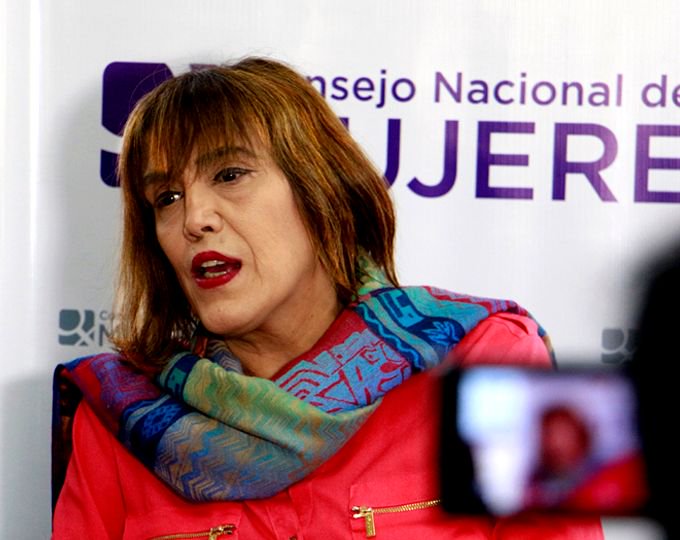In August, during the election campaign, newspaper profile published a note assaulting Ofelia Fernandez. From Fundeps we denounced to INAM and INADI but their responses were lukewarm and insufficient in the case of INAM and restrictive in the case of INADI.
“Below, we offer a google translate version of the original article in Spanish. This translation may not be accurate but serves as a general presentation of the article. For more accurate information, please switch to the Spanish version of the website. In addition, feel free to directly contact in English the person mentioned at the bottom of this article with regards to this topic”.
On July 27, Diario profile published a note entitled “Operation cancel” in which it intended to make a brief analysis of the link between social networks, new technologies and political participation.
With this objective, the author of the note, Pola Oloixarac, took as a reference figure the candidate for legislator by the City of Buenos Aires, Ofelia Fernández, making the following statement:
“In cyclic olitas, as things and people circulate on the web, we learn that certain characteristics of the Argentine bourgeoisie have an unwanted effect on the vagina of the candidate for legislator Ofelia Fernández. In a video where she is seen talking from a pulpit, she says that “the warmth of the bourgeoisie dries my shell.” Ophelia revitalizes the Marxist troop of the class struggle by bringing it closer to the immediacy of her bombshell: she invites us to think that there is an unsatisfied sexual drive in the status quo, and that the heat of the coming revolution is the only thing that could excite the young woman Ophelia According to that image, voting for Ophelia is an invitation to please her sexually, preparing her for a successful intercourse. At 19, Ofelia understands that the personal is political, that is, that the political is genital: that the Pindongas and cuchuflitos of each unite are somehow called to participate in the collective hysteria of the revolution (or the Change).”
In the cited paragraph, the author takes the metaphorical expression used by Ophelia to communicate her disagreement and rejection of certain political practices and makes a literal interpretation with the clear objective of running the debate from the political to the sexual level, degrading her for her status as a woman .
It is important to mention that it is not the first time that the newspaper profile exercises media and symbolic violence against Ofelia Fernández. On November 21, 2018, this same publisher published a note entitled “The schoolgirl k that impacted the G20 counter-summit”. The recidivism of this type of action realizes the urgent need for State agencies responsible for eradicating gender violence to carry out the necessary interventions to achieve this goal.
Faced with the violence of these speeches, from Fundeps we present the corresponding complaint to INAM and INADI through their web pages. Although the first agency received the complaint, INADI contacted by telephone to inform us that the option to make complaints by that means is no longer available and that they must be submitted in one of its offices. We understand that the restriction of the channels to make claims means a restriction on the rights of the hearings, limited to those who have knowledge about this administrative route, the time and resources to do so.
For its part, INAM’s response comes after two months of having filed the complaint; the Institution acknowledges that there was misogyny in the story, but that the author of the note did nothing more than give a literary or philosophical interpretation to Fernández’s sayings, thus minimizing the symbolic, political and media violence to which she went submitted the candidate. The document sent by the institution states:
“Although, mention is made of the genitals of the then candidate, and that should not be part of a political analysis, the note takes up textual phrases from the political leader and the article seems to become an elaborate analysis of those phrases, with some fragments of a rather literary or philosophical tone that include other figures of politics and / or culture. We understand, however, that there was misogynist production in a series of articles or journalistic coverage based on this candidate, although not only, but also other women in politics. ”
The last paragraph cited recognizes the misogyny from which the journalistic approaches to the group “women in politics” are made. However, instead of aggravating and sustaining the claim presented, the paper underestimates these misogynistic violence by falling into a collective.
It is clear that the newspaper profile profile reaffirms and reproduces the political violence faced by women who choose to perform within party politics, and accounts for delegitimization strategies through the reification and sexualization of their bodies. A deal that, on the contrary, is never applied to their male peers.
This type of action delegitimates and disables the political participation of women, as well as undermines the effectiveness of the recently implemented Law of Gender Parity, interfering with the possibility of performance on equal terms as men. This attack on Ofelia Fernández constitutes an attack on all women and a disciplinary and expulsive message from the political arena.
From the above, it is evident that we are facing a case of media and symbolic violence as stipulated by Law 26,485 on the Integral Protection of Women. This regulation defines media violence as follows:
“… That publication or dissemination of messages and stereotyped images through any mass media, that directly or indirectly promotes the exploitation of women or their images, injures, defames, discriminates, dishonors, humiliates or attempts against the dignity of women, as well as the use of women, adolescents and girls in pornographic messages and images, legitimizing inequality of treatment or constructing sociocultural patterns that reproduce inequality or generate violence against women”.
Symbolic violence, on the other hand, is defined as one that “through stereotyped patterns, messages, values, icons or signs transmits and reproduces domination, inequality and discrimination in social relations, naturalizing the subordination of women in society»
The aforementioned note also constitutes a violation of subsection m. Article 3 of Law 26,522 on Audiovisual Communication Services, which establishes the obligation to “promote the protection and safeguarding of equality between men and women, and the plural, egalitarian and non-stereotyped treatment, avoiding all discrimination based on gender or sexual orientation. ”
This content, besides constituting an act of violence in itself, functions as a legitimator and a motivator of other expressions of violence. Ofelia Fernández shared the misogynist and macho messages she received in her networks from this publication and declared “It hurts the electoral campaign a lot to enable us to be treated like this. Unfair and unpleasant. ”
Author
Mila Francovich
Contact
Cecilia Bustos Moreschi, cecilia.bustos.moreschi@fundeps.org


